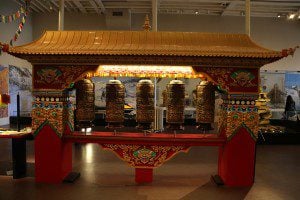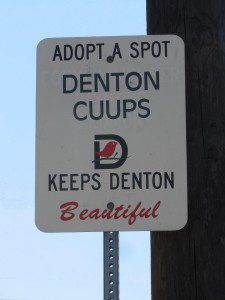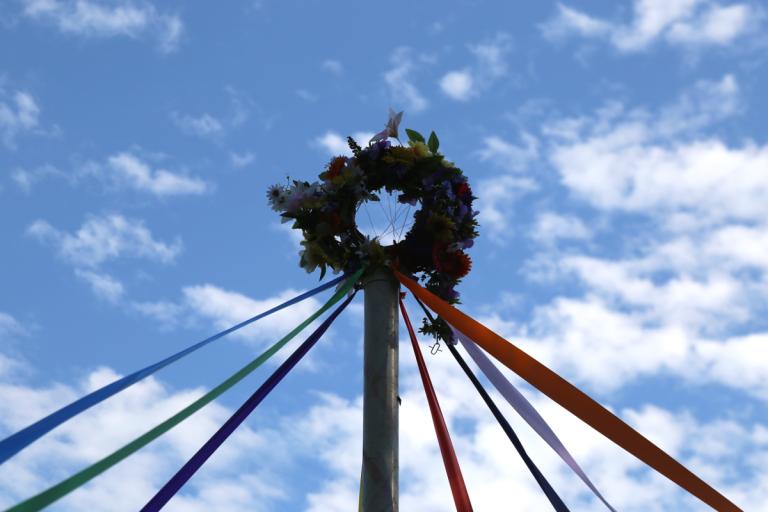UUA President Rev. Peter Morales’ column in the most recent issue of UU World is titled “The future of liberal religion is multifaith.” As a Pagan and polytheist who is committed to UU principles and whose primary group practice is in a UU context, I’m in strong agreement with this idea. But I’m not sure if Rev. Morales and other denominational leaders who promote a multifaith approach understand just how deep this idea can be.
Rev. Morales begins by pointing out something that should be obvious but often isn’t:
the major religious divisions today are no longer between faiths, but rather along the spectrum from reactionary to progressive. For example, it has long been obvious that progressive Jews, Christians, and Muslims have more in common with one another and with Unitarian Universalists than they do with the most reactionary members of their own faith.
He also points out that we see the world in much the same way:
Religious liberals from all traditions share not only common values, but also a common cosmology. We believe what science tells us about the age of our universe and evolution. We see the religious tradition into which we were born in the context of history and culture. We don’t believe our tradition is true and that others are false, rather we see our tradition more like our native language.
This is how I, a polytheist who worships many Gods, can happily and productively sit in Sunday services and serve on committees with people who believe in one God, those who believe in no Gods, and those for whom the question of Gods isn’t particularly important. For those moments, we’re not there to argue about the nature of the Gods, we’re there to celebrate the inherent dignity and worth of every person and the interconnectedness of all beings.
Perhaps this isn’t very important to those of you who live in blue states. Perhaps you can afford to obsess over theological purity in your community. Here in Texas, we need all the allies we can get!
Rev. Morales promoted this year’s General Assembly, which has the theme “where faiths connect.” He announced three special guests from other religious traditions: the presidents of the Union for Reform Judaism, the United Church of Christ, and the North Carolina NAACP. These are certainly organizations that share our UU values and who have shown themselves to be good allies in the past. But if Rev. Morales wants a more multifaith approach, he could have gone a little further afield than liberal Christians and Jews.
 I’m one UU in one congregation, but I pay attention, and I’m seeing a growing interest in Buddhism from people coming into UU congregations. The benefits of meditation are well-known, and the Dalai Lama is perhaps the most well-respected of all world religious leaders. Finding a liberal Christian church is easy pretty much anywhere in the USA, but finding a Buddhist meditation group – much less a fully functioning temple – is much harder. So people who are looking for Buddhism often show up at UU churches. Let’s be ready for them.
I’m one UU in one congregation, but I pay attention, and I’m seeing a growing interest in Buddhism from people coming into UU congregations. The benefits of meditation are well-known, and the Dalai Lama is perhaps the most well-respected of all world religious leaders. Finding a liberal Christian church is easy pretty much anywhere in the USA, but finding a Buddhist meditation group – much less a fully functioning temple – is much harder. So people who are looking for Buddhism often show up at UU churches. Let’s be ready for them.
“Spiritual but not religious” can be an excuse for religious laziness, but it can also be the beginning of a search by someone who feels called to something more but who’s completely turned off by religions that preach exclusion and insist you have to believe something they can’t honestly believe. I run into people who aren’t interested in Paganism, but could I do a Tarot reading for them? And maybe help with a rite of passage or a healing ritual? Denton UU is fortunate to have a minister who’s open to such things, and variety of practitioners in the congregation who can handle the things that are out of her area of expertise. If we want a multifaith denomination, let’s encourage a wide variety of spiritual practices.
The UUA has been dominated by Humanism since the merger of the Unitarians and Universalists in 1961. But the anti-theism of the late 20th century (that I experienced when I first became a UU) has faded in many congregations. There is value in teaching reason in the face of fundamentalism, and of reminding ourselves that the truth of our religions is not found in believing the right things, but in doing the right things. If we want a multifaith denomination, let’s draw on our own tradition of celebrating the best of humanity.
 Unitarian Universalism has a special place in Paganism. Part of this is due to the presence of CUUPS, which since 1987 has existed for the benefit of Pagan-identified UUs. In some regions, CUUPS may be the only public Pagan group available. Even where there are no CUUPS chapters, UU churches are known as safe and welcoming places. Some unaffiliated Pagan groups rent space from UU churches, and many solitary Pagans find a religious community within Unitarian Universalism.
Unitarian Universalism has a special place in Paganism. Part of this is due to the presence of CUUPS, which since 1987 has existed for the benefit of Pagan-identified UUs. In some regions, CUUPS may be the only public Pagan group available. Even where there are no CUUPS chapters, UU churches are known as safe and welcoming places. Some unaffiliated Pagan groups rent space from UU churches, and many solitary Pagans find a religious community within Unitarian Universalism.
Our 2014 Mission and Vision surveys turned up some expected results. CUUPS members bring a UU approach to Paganism – we draw from many sources and we oppose any attempt to establish orthodoxy or anything resembling it. And we value Nature, our experiences of Nature, and our relationships with Nature. Many seekers who come into UU churches have an interest in Nature spirituality. If we want a multifaith denomination, this is one area where we can reach many people from many backgrounds.
But the surveys also turned up some unexpected results. Most of the respondents have an interest in Gods and spirits. The responses were split between those who interpreted their experiences theistically and those who interpreted them metaphorically. If we want a multifaith denomination, we need to be a place where people can discuss their religious experiences openly, and where they can learn from those who understand how to facilitate such experiences.
A true multifaith denomination does not consist of some bland Judeo-Christian framework used to support liberal politics. A multifaith denomination consists of deep practitioners of many different religious traditions who come together to support each other and our common values. Imagine a young family walking into a UU congregation and finding a weekly Buddhist meditation group where they study the dharma. They find a Pagan group that holds seasonal celebrations and does roadside cleanup. They find a variety of spiritual practitioners and those committed to reason and compassion. They might even find a Bible study group, for those who want to learn about all the Biblical history they don’t teach at the Baptist church.
What do Sunday services look like at a congregation like this? That’s always a challenge – how to present wisdom from the world’s religions without diluting it into meaningless mush. But it can be done, particularly in a congregation where people expect to be challenged by religions of their friends instead of being told “deep down it’s all the same.”
Some of these people will decide they really really want to be Buddhists and they’ll leave UUism for a Buddhist temple. Great – we will have helped them along their way. Others, though, will find the Buddhism they learn in the UU congregation to be just what they needed, and the fact that they can hold on to the best parts of the religion of their childhood will be an added comfort. Still others will decide they like going to church and sitting in between a Pagan and a Christian and they especially like supporting UU values.
And some will dive deeply into Paganism, or Humanism, or some other religion. They’ll learn and grow and they’ll teach others who come after them. They will think of themselves primarily as Pagans or Humanists or something else, but they will also be UUs, because they will have found a home where they’re welcomed and accepted, and where they can serve their faith and the wider world.
So yes, Rev. Morales, let’s be a multifaith denomination. We’ve been one for many years – it’s time we embrace who and what we are. But as we do, let’s make sure our multifaith approach is as broad – and as deep – as the callings and commitments of our many members.














